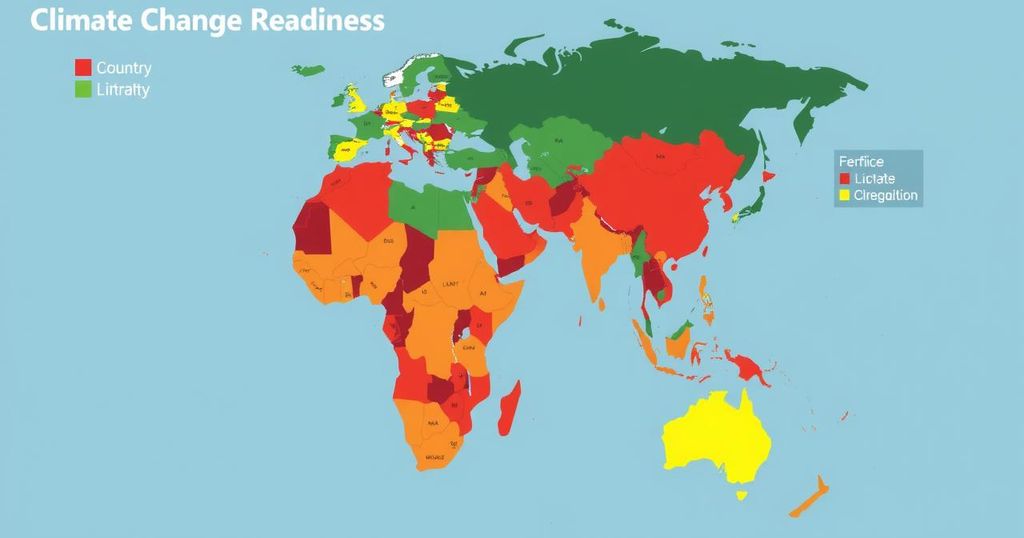Assessing Climate Change Vulnerability and Readiness in Africa: 2021 Insights

The 2021 ND-GAIN index evaluates African countries’ vulnerability and adaptation readiness to climate change, highlighting significant diversity in resilience. It reveals a pressing need for tailored strategies to address climate risks effectively. The analysis is underpinned by various critical statistics addressing emissions, climate impacts, and economic consequences, emphasizing the urgency of comprehensive climate policies across the continent.
The 2021 ND-GAIN index reflects the varying levels of vulnerability and readiness to climate change across African countries. This index assesses countries based on their sensitivity to climate risks and their ability to adapt. While some nations demonstrate significant resilience, others face alarming vulnerability, impacted by factors such as economic status, governance, and geographic location. Analysis of these indices offers crucial insights, aiding policymakers in addressing climate challenges effectively.
Moreover, numerous related reports and statistics shed light on various climate change dimensions, including emissions, natural disasters, and economic implications. For instance, Africa’s CO2 emissions and their contribution to the global total highlight the continent’s dual role as both a significant contributor and an impacted region. As climate change accelerates, understanding these dynamics has become paramount for sustainable development in Africa.
The topic of climate change vulnerability and readiness in Africa is critical as the continent faces unique challenges due to its geography, socio-economic conditions, and environmental changes. The ND-GAIN index serves as a tool to rank countries based on their exposure to climate risks and their capacity to manage these risks effectively. The significance of this index lies in its ability to aid governments and organizations in strategizing interventions that could bolster resilience and sustainability. Furthermore, demographic and economic factors play a crucial role in shaping how different nations respond to climate threats.
In conclusion, the vulnerability and readiness to climate change varies significantly among African countries, as depicted by the ND-GAIN index. This variability underscores the need for targeted strategies that consider individual country circumstances. Enhanced understanding of climate-related statistics and their implications will be vital for mitigating adverse effects and promoting resilience to climate-related hazards in Africa. The integration of robust climate finance policies alongside these assessments will further support efforts towards sustainable adaptation and disaster management.
Original Source: www.statista.com







